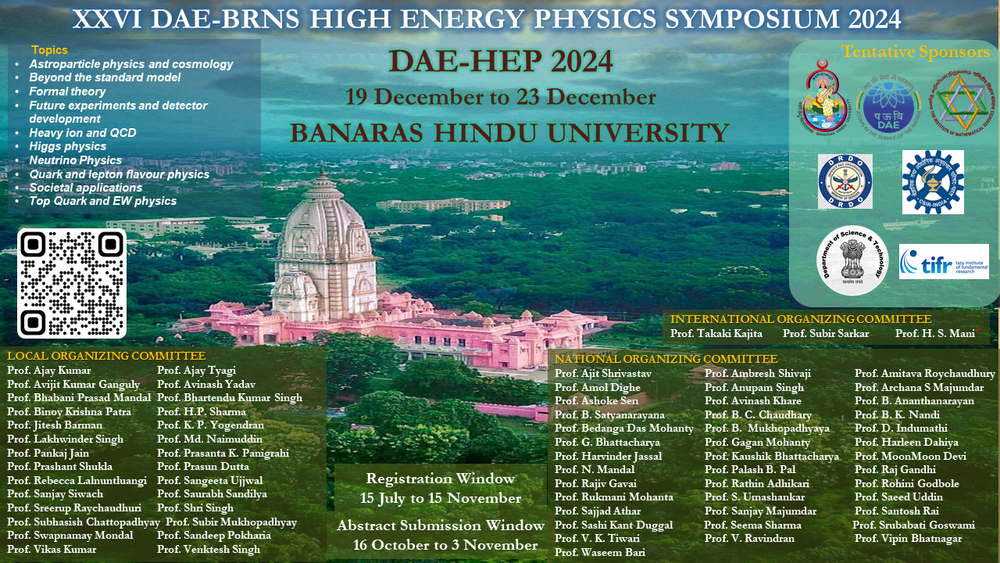Speaker
Description
The measurement of strangeness production is an important tool for understanding the hot, dense matter created in relativistic heavy-ion collisions. The strange hadron production is enhanced in heavy-ion collisions due to thermal gluon saturation, while it is suppressed in smaller systems as predicted by canonical models. Although strangeness enhancement is among the earliest proposed signatures of quark-gluon plasma formation, it remains a subject of debate till today. Hadronic resonances such as $\rho(770)^0$, $K^*(890)^0$, $\phi(1020)$, $\Sigma(1385)^\pm$, $\Lambda(1520)$, and $\Xi(1530)^0$ serve as sensitive probes of the hadronic phase — the stage between chemical and kinetic freeze-out. Their yields relative to stable hadrons alter with collision centrality or multiplicity, depending on their lifetimes, and provide insight into the hadronic phase properties. Additionally, baryon-to-meson ratios reveal information about the various production mechanisms involved in hadron formation, and require further theoretical investigations. This study presents the yield ratios of strange to non-strange hadrons, resonance to stable hadron yield ratios, estimates of hadronic phase lifetime, and $p_{\rm{T}}$-differential baryon-to-meson yield ratios in pp collisions at $\sqrt{s} = 13.6$ TeV and Pb$-$Pb collisions at $\sqrt{s_{\text{NN}}} = 5.36$ TeV using the EPOS4 hydrodynamical model. These are the highest energies at which collisions are being recorded at the LHC, providing a foundation for future data comparisons.
| Field of contribution | Theory |
|---|

